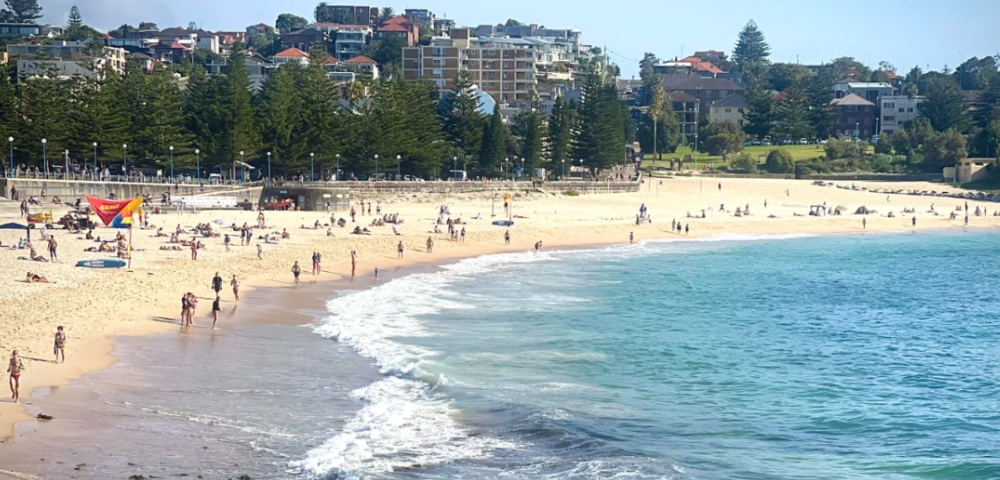
Shark sighting closes popular Sydney beach

by GRACE JOHNSON
At a popular beach in Sydney on Sunday morning, swimmers were ordered out of the water after a shark was spotted close to the shore.
The shark alarm went off at around 8:30am at Coogee Beach, which was reportedly quite busy at the time.
Once lifeguards had carried out all checks and clearances, the beach reopened thirty minutes later at 9am.
According to the NSW government’s shark smart map, there is a shark net at Coogee Beach, and a SMART drumline off the coast at Clovelly.
There are 51 beaches with shark nets between Newcastle and Wollongong, set up as part of the NSW Government’s Shark Meshing (Bather Protection) Program.
‘SMART’ stands for Shark-Management-Alert-In-RealTime. SMART drumlines consist of an anchor, two buoys and a satellite-linked GPS communications unit attached to a hook baited with one sea mullet.
SMART drumlines are positioned well away from shore and are set to intercept and catch target sharks as they travel along the coastline, reducing the chances of an interaction people in the water.
When a shark takes the bait and puts pressure on the line, boat crew and scientists are alerted to an animal being on the line.
Once alerted, the team responds immediately (within 30 minutes) to tag and release the shark.
Sharks are normally released 1 kilometre offshore. Data collected from trials show that once a shark has been relocated, it moves away from the area for several months before resuming its natural migratory path.
The last known shark attack in NSW was in August 2024, when a surfer was left fighting for his life after a great white, reportedly 4 metres long, bit him at Port Macquarie.









